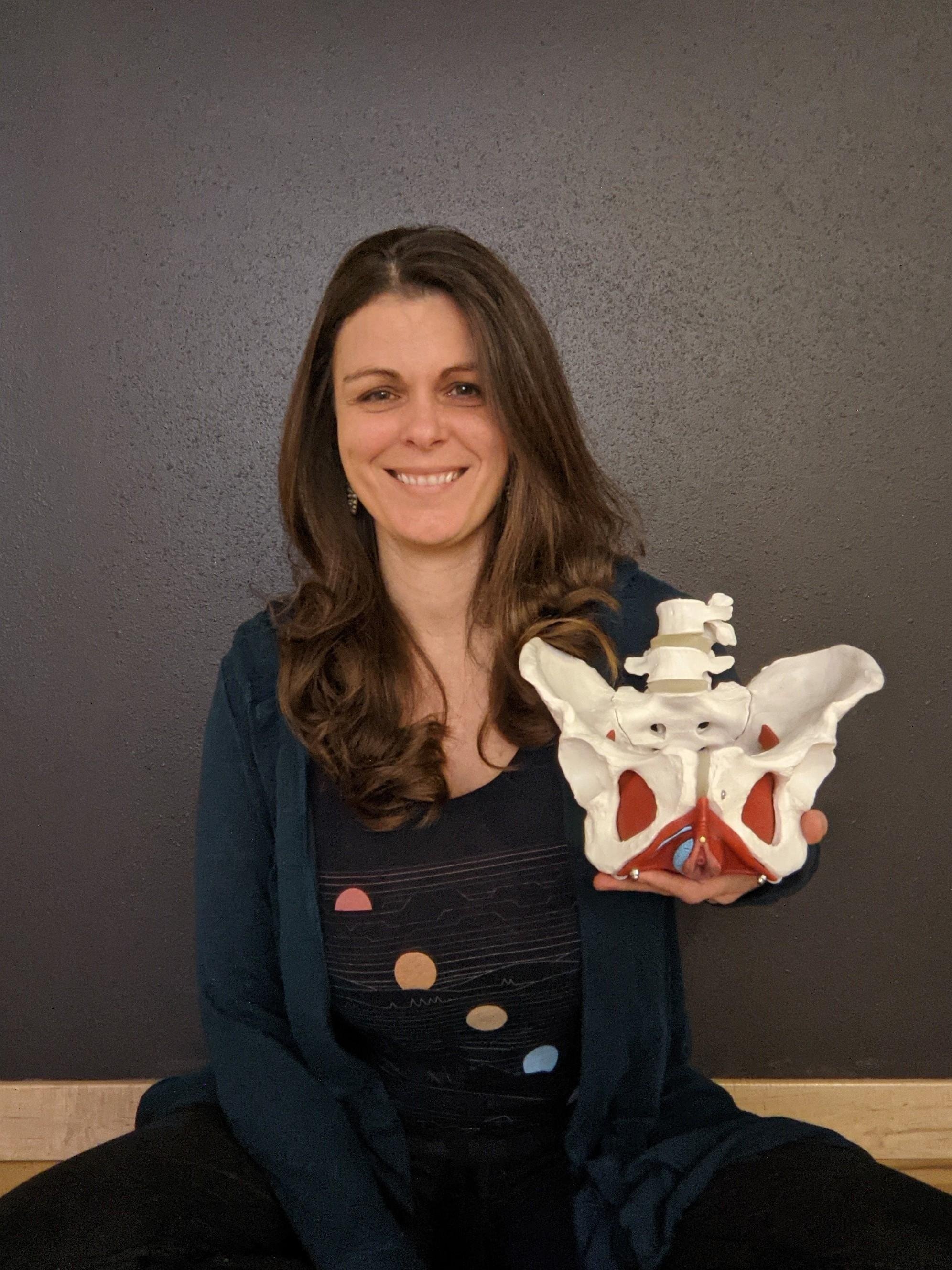I had the honor of interviewing a therapist in Madison, Jessica Dufault from Mindful Motion Physical Therapy to learn more about how she helps postpartum care in Madison. She specializes in pelvic floor and women’s wellness. She is an excellent resource for women in the pre/postnatal stage and also works with women that have experienced a pregnancy loss.
Julie: Hello Jessica,
Thank you so much for agreeing to speak with me. Would you start by introducing yourself?
Jessica: Hello,
I'm excited to be talking with you about pelvic health today and thanks for inviting me!
I'm a mom, partner, business owner and Pelvic PT in a small private practice. I support people throughout their lifespan (18+ years old, my wisest client was 94!)
Julie: Who can benefit from PT for the pelvic floor?
Jessica: Anyone with a pelvis! But specifically if you've gone through life transitions such as pregnancy, postpartum and perimenopause. During these times, your health and pelvis can undergo transitions that can be challenging to navigate alone and may sometimes require additional TLC.
Julie: I work with a lot of pre/postpartum moms. What are some symptoms that they may notice if they need physical therapy?
Jessica: Great question! If you are pre/postpartum, here are some things to look out for
Peeing when you don't want to
Prolapse which is a shift in position of pelvic organs (feeling of pressure, heaviness or a "falling out" feeling)
Difficulty with internal menstrual product use
Pain with penetration, including sex, exams, menstrual products
Scar tissue restrictions or pain (perineal or cesarean)
Diastasis Recti (separation of abdominal tissue) which can lead to feeling weak or even LBP
Pain in areas like the low back, sacroiliac joint, hip. As well as sciatica and pubic symphysis dysfunction
You may also be looking for guidance on exercise or fitness
You may want support for prepping your body for demands of pregnancy and birth
Julie: If someone has a cesarean birth is PT still helpful?
Jessica: Yes! I had an unplanned cesarean and I had NO idea how difficult the recovery would be and didn't have the support I needed (which is one factor that pushed me from an orthopedic PT to a pelvic PT!).
Taking care of the scar tissue, assessing the position and movement of pelvic organs and regaining abdominal strength are all very important to ensure good long term pelvic health.
Julie: I also work a lot with bereaved moms. I think a lot of times they don't always think about being postpartum because they are not given the same attention as a mom that is lucky enough to bring a baby home. Do you have experience working with bereaved moms? How might your work look different? What might be important for them to know?
Jessica: I don't have a lot of experience here but over the years I have supported a few people who've experienced loss in pregnancy, during birth or a few weeks after birth. And maybe my experience is limited because of what you've already mentioned, that they aren't given the same attention, resources and discussion on all aspects of physical postpartum support. And yet they have the right and deserve the same access to physical pregnancy/post-pregnancy care.
Because if you have experienced a miscarriage in early or mid pregnancy prior to 20 weeks, or a stillbirth (whether vaginal or cesarean) at anytime past 20 weeks, your body has been impacted by hormones and all the accompanying physical changes to the body that pregnancy and birth can bring on. Which deserves attention and support!
We can start early education and support depending on each person's readiness however we wouldn't do a full pelvic assessment until 6 weeks post birth.
All of my clients are screened for mental and emotional health and this helps me to understand where they are in the (potential) grieving process as well as what support they've been able to access and then I can fill in referral gaps as necessary.
And with all clients, I follow their lead in how we approach the plan of care and meet them where they are and with what they (and their bodies) seem ready for. This is especially important for clients with a history of trauma or loss.
Julie: This is so helpful. Thank you! It is a great to know that you are aware and sensitive to the trauma and grief that all these moms are going through and ways to support them.
Julie: What are the benefits that PT can offer?
Jessica: Navigating changes in our bodies can be a lot and accessing a pelvic PT can help people feel well supported physically, emotionally & mentally. Knowing you don't have to "go at it alone" or "suffer in silence" can have a profound impact.
Also it's not just about the pelvic floor! My training and education allow me to support people with all aspects of their health and wellness as it relates to menstruation, fertility, pregnancy, postpartum, perimenopause & menopause.
Julie: If someone is interested in working with you, how do they initiate that?
Jessica: Our website is a great place to start. Lots of info there on who we support and all the options- like using insurance, choosing our self-pay programs or even our online programs. We also offer online scheduling through our website.
We do have a free and private Facebook group that everyone is welcome to join if they are looking for more community, support and general pelvic health education.
Julie: Thank you so much Jessica for taking the time to meet with me today. Is there any other information that would be important to know?
Jessica: I often get feedback that our space feels very warm and inviting and that talking with me is way easier than they anticipated (and they say "I wish I had come sooner!") We work hard to make the experience feel supportive and easy. If anyone has reservations, I'm also open to chatting via email or phone call as necessary to make sure it's the right fit overall.
Julie: Jessica you are a valuable resource to the community. Thank you so much for talking with me today and all that you do for the postpartum moms. One of the reasons I asked Jessica to speak today is because of all the great content I see her putting on instagram for free. If you haven’t found her on there yet she is
that_ pelvic _lady.
For more resources on pregnancy or postpartum mental health contact julie@kullcounselingmadison.com.





